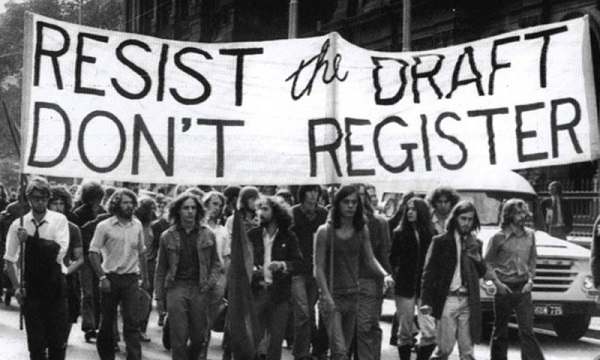Uncategorized
World faces ‘impossible’ task at post-Paris climate talks

KATOWICE, Poland — Three years after sealing a landmark global climate deal in Paris, world leaders are gathering again to agree on the fine print.
The euphoria of 2015 has given way to sober realization that getting an agreement among almost 200 countries, each with their own political and economic demands, will be challenging — as evidenced by President Donald Trump’s decision to pull the United States out of the Paris accord, citing his “America First” mantra.
“Looking from the outside perspective, it’s an impossible task,” Poland’s deputy environment minister, Michal Kurtyka, said of the talks he will preside over in Katowice from Dec. 2-14.
Top of the agenda will be finalizing the so-called Paris rulebook, which determines how countries have to count their greenhouse gas emissions, transparently report them to the rest of the world and reveal what they are doing to reduce them.
Seasoned negotiators are calling the meeting, which is expected to draw 25,000 participants, “Paris 2.0” because of the high stakes at play in Katowice.
Forest fires from California to Greece, droughts in Germany and Australia, tropical cyclones Mangkhut in the Pacific and Michael in the Atlantic — scientists say this year’s extreme weather offers a glimpse of disasters to come if global warming continues unabated.
A recent report by the International Panel on Climate Change warned that time is running out if the world wants to achieve the most ambitious target in the Paris agreement — keeping global warming at 1.5 Celsius (2.7 Fahrenheit). The planet has already warmed by about 1 degree since pre-industrial times and it’s on course for another 2-3 degrees of warming by the end of the century unless drastic action is taken.
The conference will have “quite significant consequences for humanity and for the way in which we take care of our planet,” Kurtyka told the Associated Press ahead of the talks.
Experts agree that the Paris goals can only be met by cutting emissions of carbon dioxide and other greenhouse gases to net zero by 2050.
But the Paris agreement let countries set their own emissions targets. Some are on track, others aren’t. Overall, the world is heading the wrong way.
Last week, the World Meteorological Organization said globally averaged concentrations of carbon dioxide reached a new record in 2017, while the level of other heat-trapping gases such methane and nitrous oxide also rose.
2018 is expected to see another 2
“Everyone recognized that the national plans, when you add everything up, will take us way beyond 3, potentially 4 degrees Celsius warming,” said Johan Rockstrom, the incoming director of the Potsdam Institute for Climate Impact Research.
“We know that we’re moving in the wrong direction,” said Rockstrom. “We need to bend the global carbon emissions no later than 2020 — in two years’ time — to stand a chance to stay under 2 degrees Celsius.”
Convincing countries to set new, tougher targets for emissions reduction by 2020 is a key challenge in Katowice.
Doing so will entail a transformation of all sectors of their economies, including a complete end to burning fossil fuel.
Poor nations want rich countries to pledge the biggest cuts, on the grounds that they’re responsible for most of the carbon emissions in the atmosphere. Rich countries say they’re willing to lead the way, but only if poor nations play their part as well.
“Obviously not all countries are at the same stage of development,” said Lidia Wojtal, an associate with Berlin-based consultancy Climatekos and a former Polish climate negotiator. “So we need to also take that into account and differentiate between the responsibilities. And that’s a huge task.”
Among those likely to be pressing hardest for ambitious measures will be small island nations , which are already facing serious challenges from climate change.
The U.S., meanwhile, is far from being the driving force it was during the Paris talks under President Barack Obama. Brazil and Australia, previously staunch backers of the accord, appear to be following in Trump’s footsteps.
Some observers fear nationalist thinking on climate could scupper all hope of meaningful progress in Katowice. Others are more optimistic.
“We will soon see a large enough minority of significant economies moving decisively in the right direction,” said Rockstrom. “That can have spillover effects which can be positive.”
Poland could end up playing a crucial role in bringing opposing sides together. The country has already presided over three previous rounds of climate talks, and its heavy reliance on carbon-intensive coal for energy is forcing Warsaw to mull some tough measures in the years ahead.
The 24th Conference of the Parties, or COP24 as it’s known, is being held on the site of a Katowice mine that was closed in 1999, after 176 years of coal production. Five out of the city’s seven collieries have been closed since the 1990s, as Poland phased out communist-era subsidies and moved to a market economy.
Still, in another part of the city, some 1,500 miners continue to extract thousands of tons of coal daily.
Poland intends to send a signal that their future, and by extension that of millions of others whose jobs are at risk from decarbonization, isn’t being forgotten. During the first week of talks, leaders are expected to sign a Polish-backed declaration calling for a ‘just transition’ that will “create quality jobs in regions affected by transition to a low-carbon economy.”
Then, negotiators will get down to the gritty task of trimming a 300-page draft into a workable and meaningful agreement that governments can sign off on at the end of the second week.
“(I) hope that parties will be able to reach a compromise and that we will be able to say that Katowice contributed positively to this global effort,” Kurtyka said.
___
Frank Jordans reported from Berlin.
___
Follow Frank Jordans on Twitter at http://www.twitter.com/wirereporter
Frank Jordans And Monika Scislowska, The Associated Press
Uncategorized
Poilievre on 2025 Election Interference – Carney sill hasn’t fired Liberal MP in Chinese election interference scandal

From Conservative Party Communications
“Yes. He must be disqualified. I find it incredible that Mark Carney would allow someone to run for his party that called for a Canadian citizen to be handed over to a foreign government on a bounty, a foreign government that would almost certainly execute that Canadian citizen.
“Think about that for a second. We have a Liberal MP saying that a Canadian citizen should be handed over to a foreign dictatorship to get a bounty so that that citizen could be murdered. And Mark Carney says he should stay on as a candidate. What does that say about whether Mark Carney would protect Canadians?
“Mark Carney is deeply conflicted. Just in November, he went to Beijing and secured a quarter-billion-dollar loan for his company from a state-owned Chinese bank. He’s deeply compromised, and he will never stand up for Canada against any foreign regime. It is another reason why Mr. Carney must show us all his assets, all the money he owes, all the money that his companies owe to foreign hostile regimes. And this story might not be entirely the story of the bounty, and a Liberal MP calling for a Canadian to be handed over for execution to a foreign government might not be something that the everyday Canadian can relate to because it’s so outrageous. But I ask you this, if Mark Carney would allow his Liberal MP to make a comment like this, when would he ever protect Canada or Canadians against foreign hostility?
“He has never put Canada first, and that’s why we cannot have a fourth Liberal term. After the Lost Liberal Decade, our country is a playground for foreign interference. Our economy is weaker than ever before. Our people more divided. We need a change to put Canada first with a new government that will stand up for the security and economy of our citizens and take back control of our destiny. Let’s bring it home.”
Uncategorized
Canada Needs A Real Plan To Compete Globally

From the Frontier Centre for Public Policy
Ottawa’s ideological policies have left Canada vulnerable. Strategic action is needed now
As Canada navigates an increasingly complex geopolitical landscape, the next federal government must move beyond reflexive anti—Americanism regardless of its political leanings. Instead, Canada should prioritize national interests while avoiding unnecessary conflict and subservience.
The notion that Canada can stand alone is as misguided as the idea that it is only an economic appendage of the United States. Both perspectives have influenced policy in Ottawa at different times, leading to mistakes.
Rather than engaging in futile name-calling or trade disputes, Canada must take strategic steps to reinforce its autonomy. This approach requires a pragmatic view rooted in Realpolitik—recognizing global realities, mitigating risks, governing for the whole country, and seizing opportunities while abandoning failed ideologies.
However, if Washington continues to pursue protectionist measures, Canada must find effective ways to counteract the weakened position Ottawa has placed the country in over the past decade.
One key strategy is diversifying trade relationships, notably by expanding economic ties with emerging markets such as India and Southeast Asia. This will require repairing Canada’s strained relationship with India and regaining political respect in China.
Unlike past Liberal trade missions, which often prioritized ideological talking points over substance, Canada must negotiate deals that protect domestic industries rather than turning summits into platforms for moral posturing.
A more effective approach would be strengthening partnerships with countries that value Canadian resources instead of vilifying them under misguided environmental policies. Expand LNG exports to Europe and Asia and leverage Canada’s critical minerals sector to establish reciprocal supply chains with non-Western economies, reducing economic reliance on the U.S.
Decades of complacency have left Canada vulnerable to American influence over its resource sector. Foreign-funded environmental groups have weakened domestic energy production, handing U.S. industries a strategic advantage. Ottawa must counter this by ensuring Canadian energy is developed at home rather than allowing suppressed domestic production to benefit foreign competitors.
Likewise, a robust industrial policy—prioritizing mining, manufacturing, and agricultural resilience—could reduce dependence on U.S. and Chinese imports. This does not mean adopting European-style subsidies but rather eliminating excessive regulations that make Canadian businesses uncompetitive, including costly domestic carbon tariffs.
Another key vulnerability is Canada’s growing military dependence on the U.S. through NORAD and NATO. While alliances are essential, decades of underfunding and neglect have turned the Canadian Armed Forces into little more than a symbolic force. Canada must learn self-reliance and commit to serious investment in defence.
Increasing defence spending—not to meet NATO targets but to build deterrence—is essential. Ottawa must reform its outdated procurement processes and develop a domestic defence manufacturing base, reducing reliance on foreign arms deals.
Canada’s vast Arctic is also at risk. Without continued investment in northern sovereignty, Ottawa may find itself locked out of its own backyard by more assertive global powers.
For too long, Canada has relied on an economic model that prioritizes federal redistribution over wealth creation and productivity. A competitive tax regime—one that attracts investment instead of punishing success—is essential.
A capital gains tax hike might satisfy activists in Toronto, but it does little to attract investments and encourage economic growth. Likewise, Ottawa must abandon ideological green policies that threaten agri-food production, whether by overregulating farmers or ranchers. At the same time, it must address inefficiencies in supply management once and for all. Canada must be able to feed a growing world without unnecessary bureaucratic obstacles.
Ottawa must also create an environment where businesses can innovate and grow without excessive regulatory burdens. This includes eliminating interprovincial trade barriers that stifle commerce.
Similarly, Canada’s tech sector, long hindered by predatory regulations, should be freed from excessive government interference. Instead of suffocating innovation with compliance mandates, Ottawa should focus on deregulation while implementing stronger security measures for foreign tech firms operating in Canada.
Perhaps Ottawa’s greatest mistake is its knee-jerk reactions to American policies, made without a coherent long-term strategy. Performative trade disputes with Washington and symbolic grandstanding in multilateral organizations do little to advance Canada’s interests.
Instead of reacting emotionally, Canada must take proactive steps to secure its economic, resource, and defence future. That is the role of a responsible government.
History’s best strategists understood that one should never fight an opponent’s war but instead dictate the terms of engagement. Canada’s future does not depend on reacting to Washington’s policies—these are calculated strategies, not whims. Instead, Canada’s success will be determined by its ability to act in the interests of citizens in all regions of the country, and seeing the world as it is rather than how ideological narratives wish it to be.
Marco Navarro-Génie is the vice president of research at the Frontier Centre for Public Policy. With Barry Cooper, he is co-author of Canada’s COVID: The Story of a Pandemic Moral Panic (2023).
-

 espionage2 days ago
espionage2 days agoEx-NYPD Cop Jailed in Beijing’s Transnational Repatriation Plot, Canada Remains Soft Target
-

 2025 Federal Election2 days ago
2025 Federal Election2 days agoAllegations of ethical misconduct by the Prime Minister and Government of Canada during the current federal election campaign
-

 John Stossel2 days ago
John Stossel2 days agoClimate Change Myths Part 1: Polar Bears, Arctic Ice, and Food Shortages
-

 2025 Federal Election2 days ago
2025 Federal Election2 days agoBREAKING from THE BUREAU: Pro-Beijing Group That Pushed Erin O’Toole’s Exit Warns Chinese Canadians to “Vote Carefully”
-

 Daily Caller2 days ago
Daily Caller2 days agoTrump Executive Orders ensure ‘Beautiful Clean’ Affordable Coal will continue to bolster US energy grid
-

 Daily Caller2 days ago
Daily Caller2 days agoDOJ Releases Dossier Of Deported Maryland Man’s Alleged MS-13 Gang Ties
-

 Opinion2 days ago
Opinion2 days agoLeft Turn: How Viet Nam War Resisters Changed Canada’s Political Compass
-

 Energy2 days ago
Energy2 days agoStraits of Mackinac Tunnel for Line 5 Pipeline to get “accelerated review”: US Army Corps of Engineers








